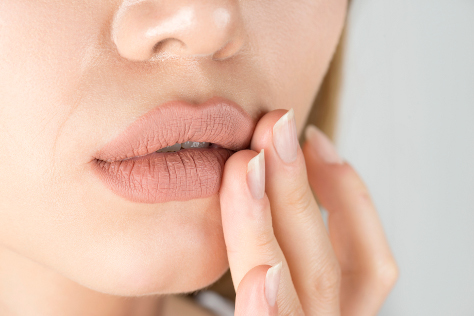Mouth ulcers and pregnancy
If you are suffering with mouth ulcers during pregnancy, there are some things you can try to ease the symptoms, oral health experts at Zendium offer these handy tips

We know there a variety of physical changes our bodies experience during pregnancy, but often changes in your oral health is overlooked. One such side effect is mouth ulcers - little welt-like spots sometimes referred to as canker sores. They appear on your tongue, lips or inner cheeks and can cause pain and irritation. Below are a few tips from oral health experts, Zendium on how to manage mouth ulcers.
Mouth ulcers in pregnancy: Why does it happen?
There are a number of things happening in your body that make you more susceptible to mouth ulcers during pregnancy:
1. Hormonal changes
Pregnancy generates hormonal changes which can affect the way our body responds to toxins and even the blood supply to the gum tissue. This makes women more prone to oral health issues.
2. Vitamin deficiency
There are a number of foods that may cause mouth ulcers such as chocolate, wheat and citrus fruits. However, in pregnancy there is another possible dietary cause that can lead you to develop mouth ulcers – vitamin deficiency. So much is going on in your body during this time that it’s common to not get enough vitamins you need for you and your baby. Try to ensure sufficient intake of Vitamin B12, folic acid and zinc in particular.
3. Stress
Pregnancy can cause extra stress, depending on the changes and symptoms you are experiencing, while trying to prepare for a new baby as well as carrying on with all your normal responsibilities. Sometimes the body reacts physically to stress and one symptom can be mouth ulcers.
4. Destabilised immunity
Mouth ulcers during pregnancy may be a symptom of a weakened immune system which is common in pregnancy.
What to do if you get a mouth ulcer when pregnant?
If you have developed a mouth ulcer, there are a few things you can do. Firstly, it’s important to ensure you are following a good oral hygiene regime. This includes brushing your teeth with a clinically proven toothpaste such as Zendium at least twice a day, flossing and using a mouthwash.
If the toothbrush is irritating your gums or the ulcer site, try using a brush with softer bristles and taking the process slowly. You can also talk to your pharmacist who can suggest creams or pastes to help ease any pain or discomfort.
It’s also important to avoid any food that may cause or further irritate the ulcer. Ulcers are generally self-limiting, but if they are causing you a lot of pain, look inflamed, last longer than three weeks or keep coming back talk to your doctor or dentist for advice.